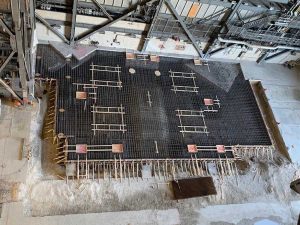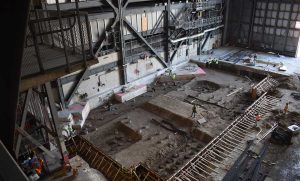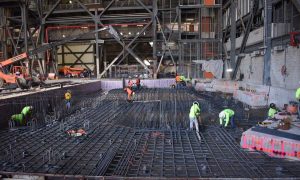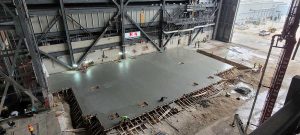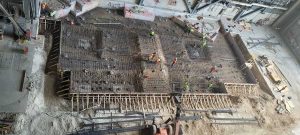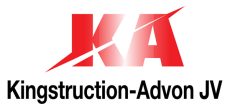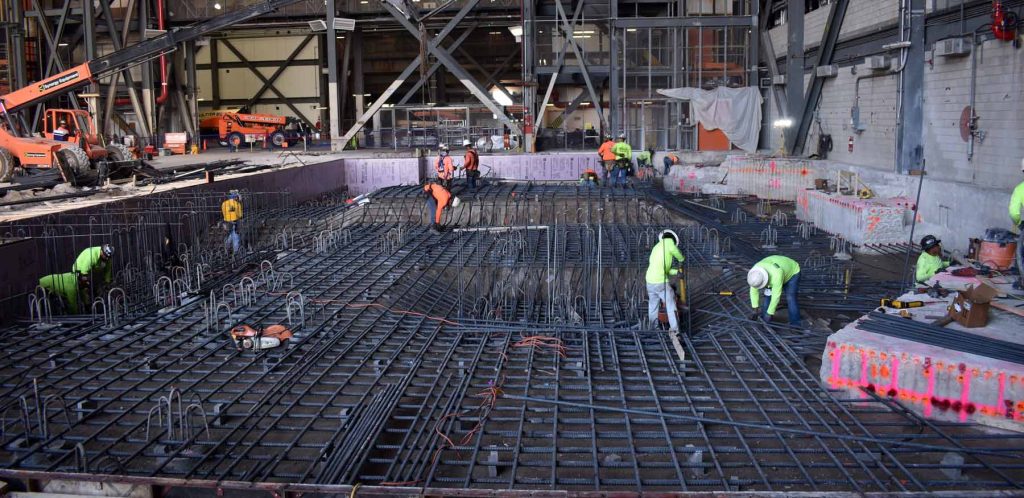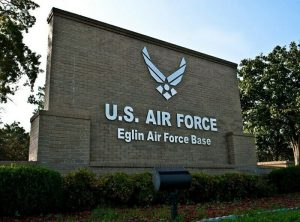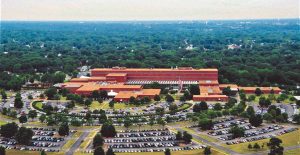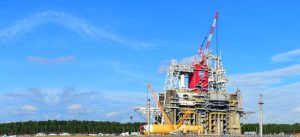This project involved the modification of the floor in VAB High Bay-2 (HB-2) to construct a foundation for a structural steel fixture being installed by The Boeing Company to support the build up and storage of the Core Stage component for NASA’s Artemis II Launch Vehicle. This support structure consists of nine columns with each carrying a 900-kip load at its baseplate. The existing floor of HB-2 could not support these loads without substantial upgrades. Compounding the problem was the fact that some of the columns would be supported on the original VAB pile caps and some on newly constructed pile caps. Differential settlement was a profound NASA concern as it could lead to the “leaning” of the fixture once it was installed and the HB-2 floor was fully loaded. Were this to happen the fixture would be unusable.
NASA approached the Space Coast Office of Advon Corporation (“Advon”) in July of 2023. They had a procurement problem since this project needed to be complete by December 31, 2023, and there was no time to place this contract using NASA’s normal procurement procedures. Due to their longstanding relationship with Advon NASA was aware that Advon was part of an existing Florida based Joint Venture Agreement with Kingstruction, Inc. The Kingstruction-Advon Joint Venture (“KAJV”) is both SDVOSB and 8(a) certified. This 8(a)-certification allowed NASA to enter into a sole source negotiation with KAJV which resulted in a contract being signed on September 1, 2023. Notice to Proceed was issued on September 13th and demolition on site began on Saturday, September 16th.
Failure to complete this work by the required December 31st deadline would have resulted in an unacceptable delay to the entire Artemis program. To support this compressed time period work was performed six days per week with a minimum of ten hours per day. Maximum manpower on job peaked at 34 employees. Any lost days due to weather, operational activities, Federal holidays or anything else had to be absorbed without delaying the project completion date.
The project was fully constructed inside the VAB with its heightened security, cleanliness and environmental requirements. The project consists of structural demolition, excavation, the installation of 124 auger cast piles, formwork, 96 tons of rebar and the monolithic pour of a single pile cap consisting of 1050 cubic yards of concrete. Due to the thickness of the pile cap special mass concrete pour and curing protocols were required. The KAJV team provided the required engineering, installed temperature monitors throughout the concrete and carefully controlled the temperature during curing by insulating the edge forms before the concrete was poured and insulating the top surface after pouring. The total cure time of seven days required heightened monitoring to ensure the entire pile cap structure did not develop excessive or differential temperatures.
Once the pile cap construction was complete KAJV backfilled the balance of the excavation including stabilized subgrade and a lime rock base course. During this time the remainder of the asphalt surface was being milled to a depth of 1”. Once this was complete the entire high bay including the milled surface and the new lime rock was overlaid with 2” of asphalt yielding a final, level surface for the entire high bay, a requirement for the follow-on Launch Vehicle processing operations.
Gallery
